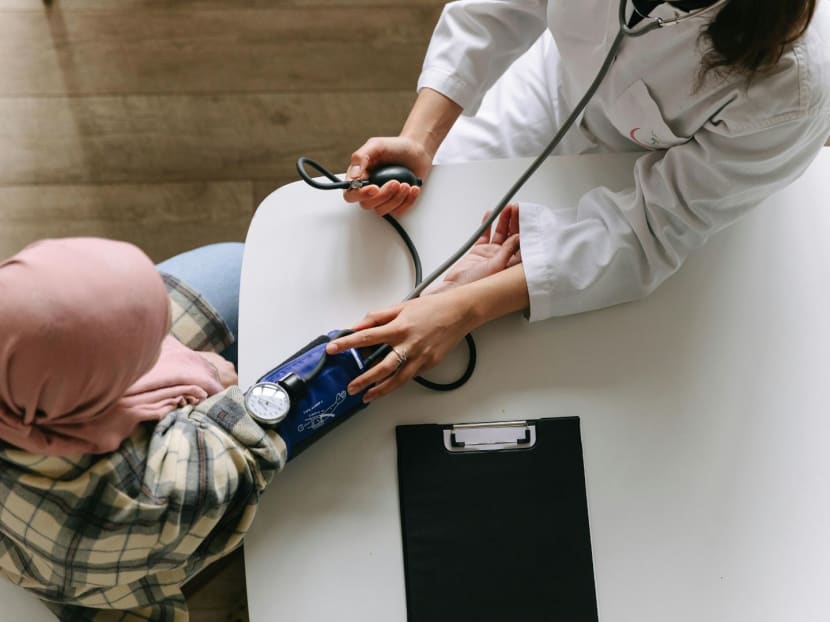Commentary: More couples are signing up for health screenings before getting married. Here’s why

Back in the 1980s, brides in Singapore tied the knot at a median age of 23.6 years. By 2012, it climbed to 28 years — and then inched up to 29.3 years by 2022.
Similarly, the median age of grooms in 2022 stood at 30.7 years, up from 30.1 compared to 2012. Modern couples are waiting to settle down at older ages, taking stock of concerns over financial security, partner criteria, career readiness, and other commitments before entering into an official union.
As young couples are becoming more informed than ever, health before marriage has been an area of growing concern. A study by the National Library of Medicine in the United Kingdom found that half of respondents favoured making premarital screenings obligatory before tying the knot.
Here in Singapore, DTAP Clinic has seen demand for premarital health screenings jump 15 per cent from 2022 to 2023 — with couples looking for a holistic overview of their joint health prior to exchanging vows.
WHY DOES TRANSPARENCY IN HEALTH MATTER?
Health has a big impact on how relationships can grow and change over time. The identification of potential health risks and genetic concerns through premarital screenings empowers couples with the knowledge to make informed decisions.
Take the unfortunate situation of an identified cancer within a relationship — the couple can decide the best direction moving forward to balance treatment, finances, and relationship expectations together.
Physical and mental well-being greatly impacts a couple's ability to support each other emotionally, maintain intimacy, and navigate life's challenges. No matter how smooth a relationship can be, serious illnesses (for example) can add a multitude of unexpected challenges — which can be overwhelming.
Transparency in health is particularly important as couples might have preconceived notions and expectations on how they wish to go about building their future family.
If conceiving is to be tougher or trickier than expected, or out of the picture entirely, the drastic shift of such goalposts could potentially affect long-term plans for the relationship.

HOW IS A PREMARITAL HEALTH SCREENING CONDUCTED?
There are a multitude of health screenings couples can undertake before settling down in Singapore. These oftentimes include different clinical tests — from fertility and sexually transmitted infection (STI) testing to general health screenings.
Comprising of a mixture of consultations, blood tests, urine tests and swab tests, results are typically available within five or so working days and will be reviewed by qualified physicians. Should the tests surface any abnormalities, follow-ups will be arranged for further assessment.
KNOWLEDGE FOR A HEALTHIER FUTURE TOGETHER
Many conditions fly under the radar, unknown to couples without proper testing. In premarital health screenings, doctors typically would check for thalassaemia and STIs that could pose threats of unhealthy children and infertility.
Thalassaemia is a blood disorder and is a common cause for concern in couples looking at conceiving. If both parents are thalassaemia carriers (Thal trait/minor), their child will have a 25 per cent chance of having thalassaemia major, a severe form of anaemia that can result in the need for frequent blood transfusions and a potentially reduced life expectancy.
In the event that blood disorders such as thalassaemia is uncovered in a premarital screening, couples can then explore options such as pre-implantation genetic diagnosis (PGD) to avoid the risk of having a child with a major genetic disorder, or plan for the significant emotional and financial resources required to bring up such a child.
Clear visibility provided by such screenings enables proper family planning and open discussions about caring for a potentially ill child, or the choice to adopt instead of conceiving.
STIs also pose threats of infertility for couples, with chlamydia and gonorrhea being infections that should be screened for. Left untreated, they can cause chronic scarring of the fallopian tubes, which affects chances of conceiving.
Other screenings also aid couples in identifying chronic illnesses that might lead them to review plans for their marriage. Statistics show that certain ailments have been on the rise among younger populations, which include the likes of cervical cancers, Type 2 Diabetes and hypercholesterolemia.
For example, the number of cancer incidences for those under 49 years old from the period of 2008 to 2012 compared to the period of 2017 to 2021 increased from 11,416 to 12,600.
ACCESSIBILITY, SUPPORT, AND CONFIDENTIALITY
One prevalent misconception about premarital screenings involves the stigmatisation of the process, associating it with distrust or suspicion between partners.

On the contrary, such screenings aim to establish a foundation of transparency, understanding, and mutual support. They serve as a proactive approach to assess and manage potential health risks, ensuring that both partners enter their union with a comprehensive understanding of their health status.
As such, premarital screenings do not signal a lack of trust but rather a couple’s commitment to building a relationship based on openness, shared responsibility, and a commitment to each other's well-being.
Another potential source of reservation is concerns from participants over confidentiality. Although clinics such as DTAP keep a record of patients who come for premarital screenings, many of them also offer anonymous testing for sensitive STIs (such as for syphilis, HIV, chlamydia and gonorrhoea) where patients’ names and identification numbers are not collected.
Alternatives such as self-service kiosks are available for public use as well, for those looking to avoid the awkwardness of consulting a doctor face-to-face for STI-related issues.
THE TAKEAWAY
Even as perceptions and dynamics around modern relationships and family planning continue to change, couples planning for marriage can lay the ground for a stronger, more supportive union by fostering open and honest communication between themselves in important aspects such as health.
For young couples, taking proactive steps to safeguard their relationships through health screenings is an investment in their overall well-being and happiness together.
ABOUT THE AUTHOR:
Dr Jessica Beh completed her Doctor of Medicine at the University of Melbourne, Australia in 2015. She specialises in women’s health at DTAP Medical Clinic, focusing on areas such as cervical and STD screening, abnormal periods, and contraception counselling and services.







